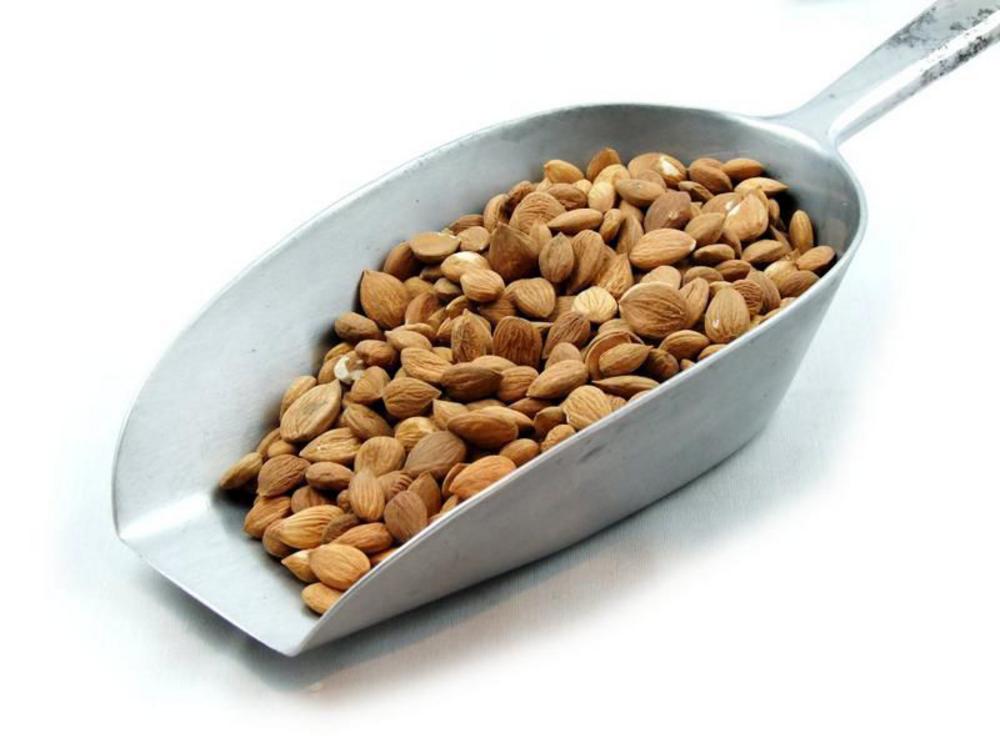
Buy the full range of apricots here
If you are looking for more information on sweet apricots, please follow this link
Where are Bitter Apricot Kernels from?
Real Foods' Bitter Apricot Kernels are organic and sourced from Pakistan.
The earliest record of their use is thought to have been thousands of years ago in China. They are noted in one of the great Herbal Medicine books, attributed to the mythical Chinese Sovereign Shennong in 2800 B.C., that was written around 200 A.D. The original texts no longer exist. It was then exported into the Mediterranean around Roman times.
What do Bittter Apricot Kernels look like?
They are the seed or kernel of an apricot. They look incredibly similar to Almonds, although a little smaller and are often confused with them. They have a firm, crunchy texture and a bitter, fresh taste.
What do Bitter Apricot Kernels do?
They contain Amygdalin, this is a substance similar to Laetrile (the synthesised alternate) and sometimes referred to a Vitamin B17 (although there's no such vitamin!) Amygdalin and Laetrile contain Cyanide (as do many other pitted fruits like almonds or cherries). However in Bitter Apricot Kernels these levels are high.
Bitter Apricot Kernels are consistently linked with anti-cancer properties. Studies vary. A large review in 2010 found "The claims that laetrile or amygdalin have beneficial effects for cancer patients are not currently supported by sound clinical data." (See abstract of Cochrane Review here). On the other hand, other studies have found positive anti-cancer effects. For example a recent one found it may help prevent or alleviate breast cancer (see summary here).
Why is there a consumption warning on Bitter Apricot Kernels?
Bitter kernels contain small traces of cyanide, which in large quantities may cause nausea, fever, headaches and coma. In 2006, the British Food Standards Agency posted a health alert, claiming that consuming 20 to 30 kernels in a short period of time could result in cyanide poisoning and death. However, cases of cyanide toxicity are rare. It must be remembered that all studies are looking at extracts and not the whole apricot kernel, it is impossible to determine with any accuracy the amounts in a natural product and so the consumption warning remains at 1-2 kernels per person, per day in the UK
So now you know all about Bitter Apricot Kernels! The question is... how do you use them?
Bitter Apricot Kernels have long been popular in European baking. It's traditional to use a few kernels in jam to add flavour, they're usually left in the straining and not eaten, although some recipes grind them and add to the mix. They're thought to add a bitter lift and heighten the taste.
Italians crush them and use them in Amaretti di Saronno, made with egg whites, sugar and bitter apricots or almonds they've been around since the 18th century and are a sweet macaroon.